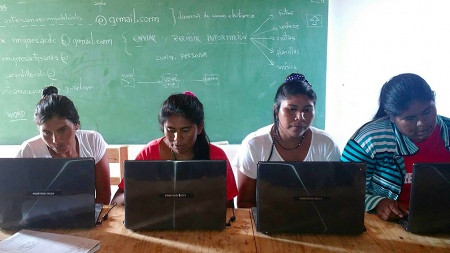A total of 149 million digital jobs will be created in the next two yearsaccording to a global private study, which nonetheless stresses the importance of “rehumanizing” work spaces.
The latest report from the consulting firm Manpower Group indicated that “by 2025 there will be 149 million new digital jobs and 50% of the workforce will need to be retrained”Therefore, “to maximize return on investment, employers will need to nurture digital skills from within while seeking external talent.”
They also propose at a global level the use of technology to “re-humanize the workplace”, since “human skills are the most difficult to find”.
“The last thing machines will be able to do is show respect, appreciation or concern for others”said the director of innovation of Manpower Group, Tomas Chamorro-Premuzic, adding that “as technology becomes more prevalent (…) the real need is for people to improve their human skills and the soft side of talent , which are actually the hardest to find.”
In Argentina, according to a survey by the consultancy Randstad, there is a high valuation of the so-called “soft skills for work” among which flexibility to adapt to changes was identified as most relevant (23%), the willingness to work in team (19%); resolution capacity (18%); organization and time management (15%) and communication skills (11%).
In order of importance according to the opinion of those surveyed, they follow Leadership with 6% positive responses, Proactivity with 5%, Negotiation with 3% and finally Creativity with 1% mentions.
In general According to the survey carried out in Argentina among 1,510 people who are actively seeking employment, 88% consider that soft skills are essential for work; 11% that they are moderately important and, at the opposite extreme, only 1% of those consulted consider them irrelevant to their work.
According to the CEO of Randstad for Argentina and Uruguay, Andrea Ávila, “soft skills have established themselves as the key competence that all organizations look for when adding talent.”
“That is why it is very important that people keep in mind the role they have for their professional career and dedicate time and resources to their development, since although some people may have a natural predisposition for soft skills, such as empathy or the ability of resolving conflicts, it is always possible to improve them through training, self-reflection, feedback, and mindful practice in professional and personal situations,” he added.
In the latest edition of The Future of Jobs report, the World Economic Forum (WEF) included the 10 main skills for the future, based on the great challenges that a labor market in constant transformation brings us.
analytical thinking and innovation; active learning and learning strategies; resolution of complex problems; critical thinking and analysis; creativity, originality and initiative; leadership and social influence; use, monitoring and control of technology; technology design and programming; resilience, stress tolerance and flexibility and, finally, reasoning and problem solving.
The report “the new era of human potential”; Disseminated by the international consultancy firm, it stated that “the demand for specialized skills will continue to grow” and noted that of the “more than 140,000 technology workers laid off since March 2022, 72% found new jobs in three months.”


















